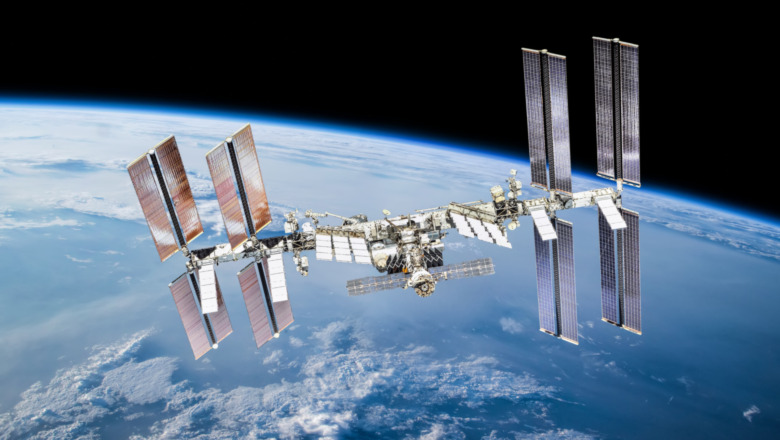Here's What Really Happens When You Fart In Space
Farting is pretty common here on earth. In fact, the place was built to absorb the carbon dioxide, nitrogen, hydrogen, and methane all living beings expel as part of the digestive processes (via Medical News Today). Farting is so common in human beings that the average adult passes gas 12 to 24 times a day. And while all living beings spend a good portion of their daily lives passing gas in relative safety, those humans that live in space for any length of time have to take precautions before releasing their exhaust. While carbon dioxide and hydrogen are not flammable gases, hydrogen and methane very much are. And fires in small, pressurized spaces, like the cabin of a space shuttle or station, are very bad.
In living beings, intestinal gas occurs as part of the digestion process. Food gets broken down into its primary components by bacteria in the colon. A by-product of digestion, this intestinal gas is called endogenous gas by scientists. While most of it is odorless, sometimes a little methane or hydrogen sulfide is released during digestion, giving farts that unique tangy smell. And while that generally isn't a problem here on earth, besides causing some mild embarrassment, methane and hydrogen are highly flammable and that can be a very real danger in tiny, confined spaces.
In space, no one can hear you toot
To minimize the amount of gas astronauts release, NASA early on in space flight banned foods that were known to cause gas. According to NPR, foods like beans, cabbage, and broccoli were banned for a long time. And while some of these foods have made their way onto some astronaut menus, most are still very much limited. For astronauts heading to space these days, their list of banned foods includes (via Reader's Digest): bread (bread crumbs/small particles floating around in space are very bad), soda (space makes soda flat, which isn't palatable), salt and pepper (see bread: no crumbs or small particles in space), fresh milk (no refrigeration), pizza (dough doesn't get crispy in space) and alcohol (for obvious reasons).
But, as it turns out, the biggest threat that comes from farts in space isn't so much their flammability, but their smell — the lingering nature of the smell of farts, to be specific. On earth, there's airflow that helps dissipate a particularly nasty toot fairly quickly. In space, however, folks aren't as lucky. Living in a small, pressurized cabin doesn't provide much airflow, so smells can linger for a very long time. In an interview with Gizmodo, astronaut Mike Massimino talks about passing gas in such confined quarters: "Farts can kind of hang out. There's not as much airflow as on earth. You gotta introduce airflow to get rid of contaminants ... the nice thing to do is to go to the restroom where there's more ventilation to take the odor away."
In space, as it turns out, no one can hear you scream ... or fart — but they can definitely smell you.

